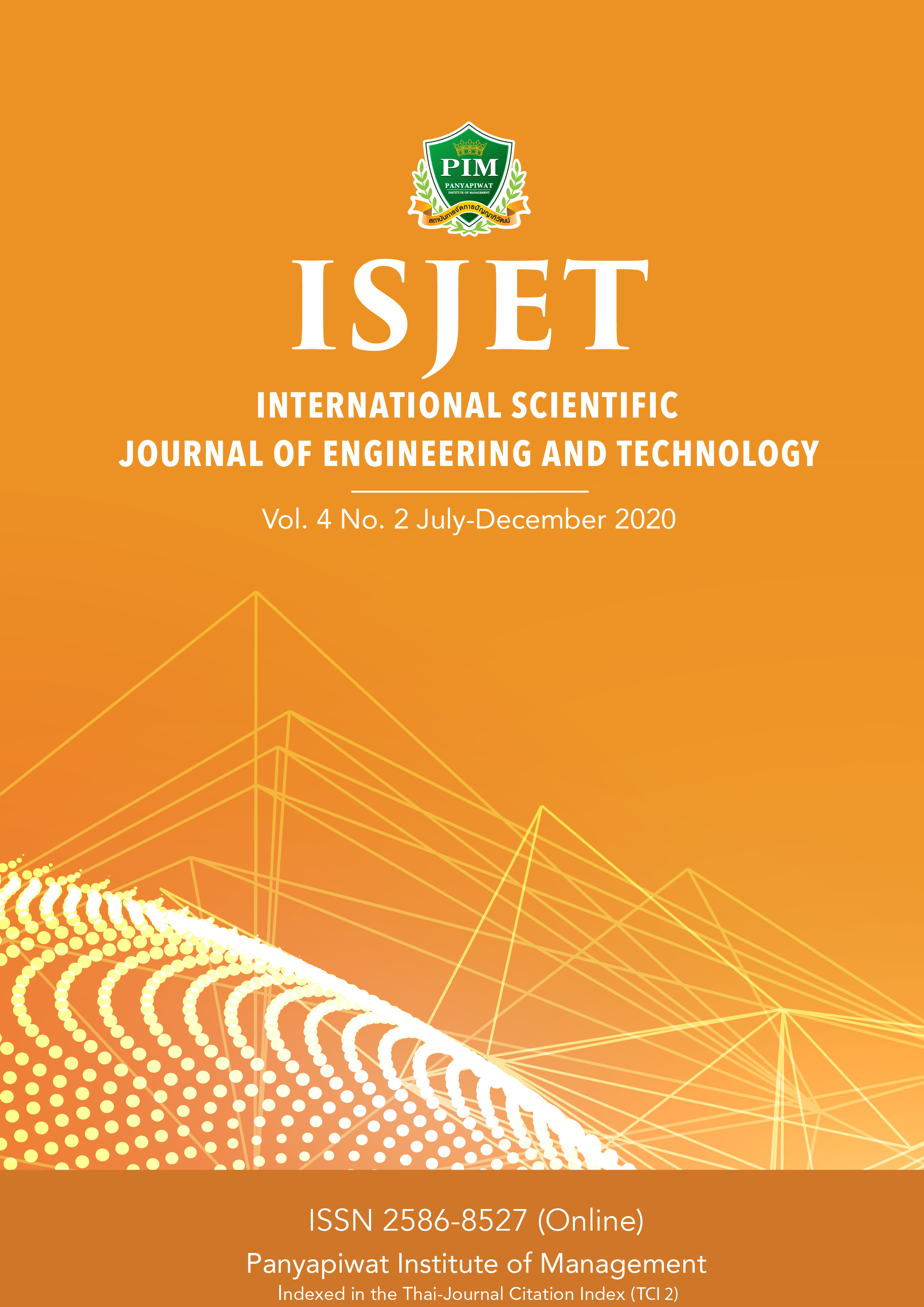An Effect of Gamification on Education under Online Lives Teching
Main Article Content
Abstract
It is necessary for traditional offline teaching to be transformed into online teaching to continue education during emergencies. The technology is ready for the transition of teaching from traditional classes to online classes. However, it is difficult to achieve successful online live teaching due to several factors, including distraction, motivation, and self-directed learning of the learner. Therefore, gamification has been selected to apply to online live teaching. By applying the game mechanic including game and reward system, this motivates the learners and increases their participation. The result illustrates that gamification can help increase participation and motivate learners in online teaching compared to in-class teaching. Moreover, by extending the research to apply gamification to pure online lives teaching, the result shows that it is guaranteed to help motivate the learners to attend the classes, participate in activities, and make discussions, thus increasing the understanding of course materials reflected by the activities and quiz scores. This fact shows that gamification is necessary for online live teaching which can help support motivation and increase participation in online live class learning.
Article Details

This work is licensed under a Creative Commons Attribution-NonCommercial-NoDerivatives 4.0 International License.
เนื้อหาข้อมูล
References
N. Buzzetto-Hollywood, “The Basics for Understanding e-Learning in Principles of Effective Online Teaching,” in Santa Rosa, California, Informing Science Press, 2007, pp. 1.
M. Kebritchi, A. Lipschuetz, and L. Santiague. “Issues and Challenges for Teaching Successful Online Courses in Higher Education: A Literature Review,” Journal of Educational Technology Systems 2017, vol. 46, no. 1, pp. 4–29, Aug. 2006.
A. Popovic, J. Lindic, Indihar Stemberger et al., “Web Triad: the Impact of Web Portals on Quality of Institutions of Higher Education-Case Study of Faculty of Economics, University of Ljubljana, Slovenia,” Issues in Informing Science and Information Technology, vol. 2, pp. 313-324, Jan. 2005.
H. Peng, C. Tsai, and Y. Wu, “University students’ self-efficacy and their attitudes toward the Internet: The role of students’ perceptions of the Internet,” Educational Studies, vol. 32, pp. 73–86, Aug. 2006.
P. Na Lamphun and P. Na Lamphun. (2017, Jun.). A Prototype of Job Distribution System for Community: A case study of a Corporate Social Responsibility using NFC. International Scientific Journal of Engineering and Technology. [Online].1(1), pp. 9-17. Available: https://ph02.tci-thaijo.org/index.php/isjet/article/view/175766/125582
P. Na Lamphun, “Applying Gamification in Information Technology Project Management Course,” Education and Communication Technology Journal, vol. 12, no. 12-13, pp. 4-14, 2017.
R. Na Lamphun, P. Na Lamphun, P. Patompaket et al. (2019, Jun.). Gamification’s effect in Social Media on CSR activities. International Scientific Journal of Engineering and Technology. [Online]. 3(1), pp. 25-30. Available: https://ph02.tci-thaijo. org/index.php/isjet/article/view/198971/138752
S. Parnsup, P. Khongkhaluang, and P. Na Lamphun, “Application of Gamification in CSR Activies: A Case Study of Garbage Bank,” Panyapiwat Journal, vol. 9, no. 2, pp.
-207, Aug. 2017.


